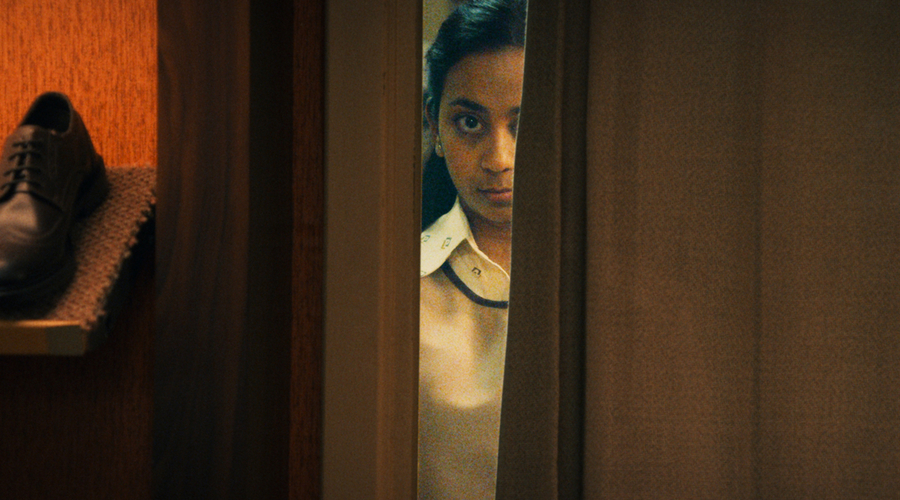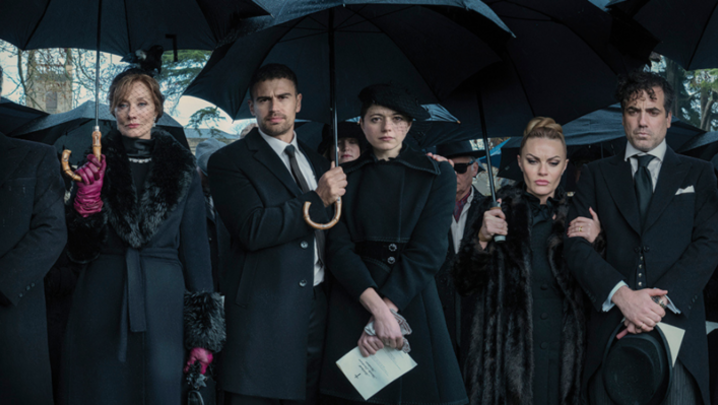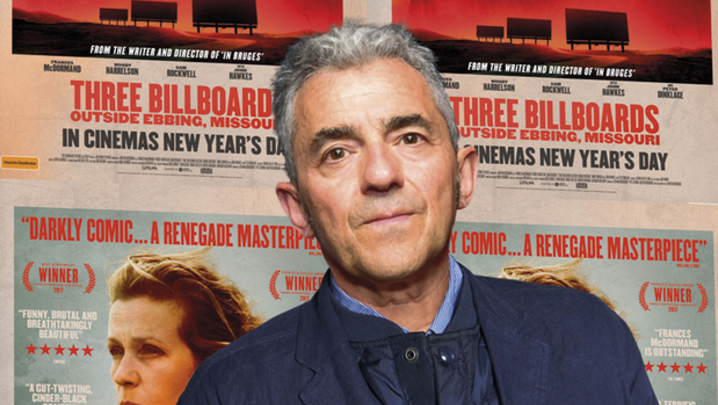Charlie Brooker is taking Black Mirror in a new direction for its sixth series. Harry Bennett hears how
At one point in his book Inside Black Mirror, when discussing the inspiration for his global dystopian sci-fi phenomenon, Charlie Brooker credits the “shiny adverts for Apple” that were appearing at the time. He says: “Being a paranoid person, as soon as I see any advert where everyone’s really happy and smiley, I immediately think it’s a bit like a sinister advert in a dystopian movie.… The fact that it looked so happy meant that it couldn’t last.”
How right he was. Twelve years on, and amid all the talk of enslavement to our smartphones, addiction to social media, paranoia about data mining and hyper-surveillance, and now warnings that artificial intelligence could wipe out our species, it seems technophobia has reached fever pitch.
So what to do when the culture has caught up with you? When your series has become part of the mainstream to the extent that its very title is shorthand for any art exploring the dangers of tech (“it’s a bit Black Mirror-y”)? When, five seasons in, you find yourself penned in by, as Brooker puts it, “what the world thinks a Black Mirror episode is”?
“When I was first doing the show,” he recalls, “it wasn’t like I sat down and thought: ‘What gizmo has just been launched this week that I have to do a story about?’ And yet I get people saying to me, ‘You’ve got to do an episode about NFTs [non-fungible tokens]’. When I hear that, I wish I was dead. Like, is that what my life is about?”
He therefore likens his approach for the sixth series, which lands on Netflix on 15 June, to “sitting in an aeroplane seat and trying to commandeer new bits of the elbow room”.
"I get people saying to me, ‘You’ve got to do an episode about NFTs’. When I hear that, I wish I was dead"
The result is a series of radical departures. For starters, only one episode, Joan Is Awful, is set in the future – because, having spent most of Black Mirror’s run conjuring present and futuristic nightmares, where better to find that elbow room than in the past? Mazey Day jumps back to the early 2000s to revisit the horrors of peak paparazzi; Beyond the Sea goes even further back, to reimagine space exploration in 1969. There are gizmos, then, but old and new and somewhere in between.
Brooker says his initial plan was to make all five episodes period pieces, until the idea for Joan is Awful “popped up” and proved “irresistible”. In a daredevil opening statement that takes shots at both the Netflix overlords and their subscribers, Joan Is Awful follows the fallout from a prestige TV adaptation of the life of a very ordinary woman (played by Annie Murphy), in which Murphy’s character is played by Salma Hayek. It might be Black Mirror’s funniest episode yet; an early sign that this series plays fast and loose with tone as well as time.
Given that its themes include data mining, image rights and others that we are not yet at liberty to discuss, it is also perhaps the most timely of the series, justifying Brooker’s abandonment of the time limit. He admits, however, that such fickleness is the privilege of anthology: “You end up, in a Darwinian way, following what the best story is.”
Here, Jessica Rhoades, executive producer and self-described “partner-in-crime”, chimes in to spotlight the flexibility of the team, which allowed them “to just change tack when a better idea came along”.
All this talk of ideas “popping up” and “coming along” makes Brooker’s creative process sound slightly passive. Perhaps because, to some extent, it is. Several of his ideas seem to stem from simply watching TV, albeit with the sensitive antennae he must have developed writing his parody listings website, TVGoHome, and The Guardian’s Screen Burn column.

Take the catalyst for Joan is Awful, The Dropout, Netflix’s docudrama about the rise and fall of Elizabeth Holmes, the disgraced founder of the biotech company Theranos: “I just thought, God, wouldn’t it be so weird if you were Elizabeth Holmes, who wasn’t on trial at the time, and you switched on the TV and you were being played by a Hollywood actress.”
Or Loch Henry, which sees a young couple (played by Samuel Blenkin and Myha’la Herrold) visit a remote Scottish town to film an ethical nature documentary, only to abandon their plans for a much juicier story of a local murderer. It's a pitch-black satire of true crime, its tendency to heartlessly aestheticise the most heinous acts and exploit our morbid curiosity.
But Brooker admits he “hoovers up” true crime to the point where he is “almost disappointed that we have run out of murderers to document.”
This time, he was watching a “BBC true crime thing about something awful that had happened in Scotland,” and, as with all true crime docs, he notes, it started with a lovely drone establishing shot. “But this particular one was really leaning into how beautiful the landscape was. Because they love to do that, right? Look at the beauty – and then they’ll cut to someone lying dead on the floor.”
He was watching it with his wife and, despite all the horror, they ended up Googling the location because they wanted to go on holiday there. “And I thought that chain of events was weird: a terrible thing happening in someone’s life led to me trying to work out if I can go on holiday there.” He adds that he often experiences a similar discomfiting dissonance at TV awards ceremonies, when winners are gleefully accepting awards for programmes they have made about disasters. “I’ve seen it happen at the RTS Awards!”
"I'm almost disappointed that we have run out of murderers to document"
Such stories hint at one of Black Mirror’s underacknowledged virtues: empathy. Granted, Brooker clearly loves nothing more than existentially torturing his characters. Any number of episodes come to mind, including some of the new series, but, to avoid spoilers, special mention goes to White Christmas, the 2014 anti-Christmas special that somehow imagines two fates far worse than death, and whose end credits’ needle drop of Wizzard’s I Wish it Could Be Christmas Everyday is now bound to send anyone who has seen it spiralling.
But, beyond the sadism, and despite the aforementioned departures, this series is also a return to form in that, for all its cultural and technological insight, most if not all the episodes home in on a smaller, human story.
At another point in Inside Black Mirror, Brooker even jokingly rues the extent of his own empathy, specifically when portraying politically conservative characters. The last of the new episodes, Demon 79, therefore whiffed of Brooker (along with his co-writer Bisha K Ali) finally throwing caution to the wind and letting rip at the Tories. Not only is it set in Northern England during the 1979 General Election that saw Margaret Thatcher sweep to power – and stars Anjana Vasan as Nida, an Indian sales assistant experiencing the kind of racism that was being exploited by some of the candidates – it also features a particularly nasty, Enoch Powell-like politician.
Even though Nida finds herself fantasising about wreaking revenge, Brooker assures me that he wasn’t that calculated. Although he believes 1979 was a significant turning point, “because you had this populist tsunami come in and change the tone of everything, and the world became more hawkish”, he says he “wasn’t actively trying to upset the applecart. [The Tories] are doing that to themselves!”
Series 6 has broadened its horizons to send up all of true crime, the paparazzi and even Netflix itself, but it seems that some things are so self-satirising they are beyond even the Black Mirror treatment.






